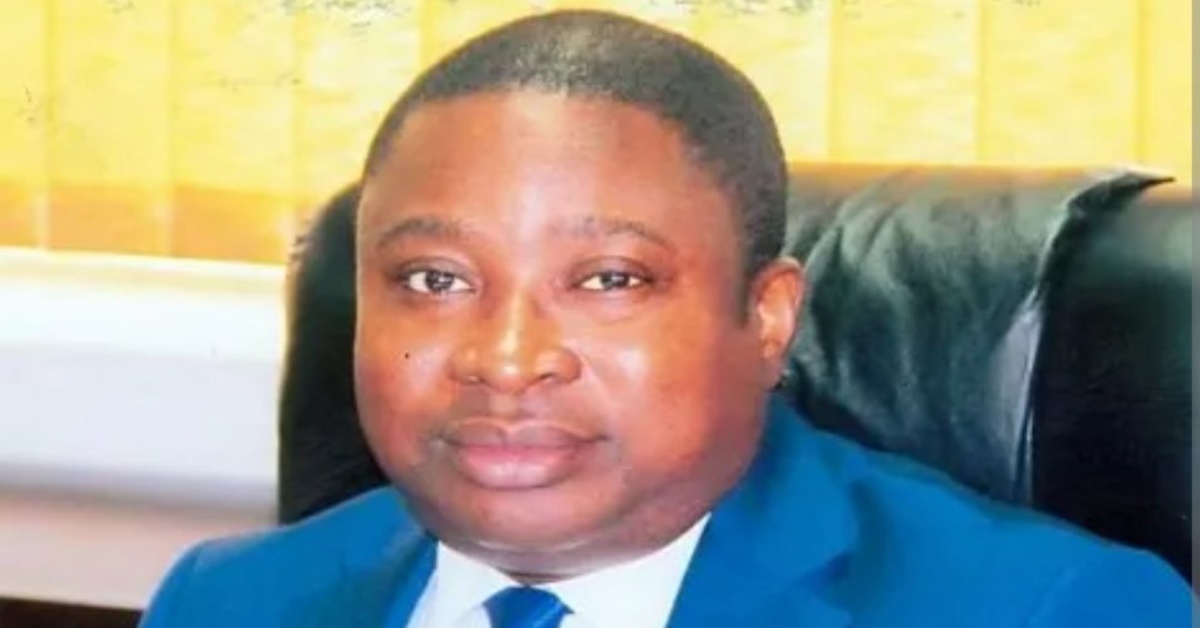1
The Monetary Policy Committee (MPC) of the Bank of Sierra Leone (BSL) met on 28 September 2023. The Acting Governor, Dr. Ibrahim L. Stevens, chaired the meeting. After a careful assessment of recent macroeconomic and financial developments in the global and domestic economy, and the implications for domestic inflation and growth, the MPC decided to raise the Monetary Policy Rate (MPR) by 2.0 percentage points, to 21.25 percent. The key considerations that informed the decision on the stance of monetary policy were as follows:
GLOBAL ECONOMIC DEVELOPMENTS
The IMF, in its July 2023 edition of the World Economic Outlook (WEO), revised the 2023 global growth projection upwards by 0.2 percentage points to 3.0, but expect growth to remain the same in 2024. The revision for 2023 largely reflects a moderation in global systemic banking sector risks, coupled with the downward trend in global inflation. Despite these developments, the MPC noted that risks to global growth remain tilted to the downside, due to subdued economic activity in the United States and the Euro Area, the Russia-Ukraine war, tight global credit supply, elevated global debt levels and other geopolitical tensions. Though global inflationary pressures appear to be receding, the pickup in crude oil prices in recent months and the collapse of the Black Sea grain deal are however major upside risks for global inflation, which could affect global growth through tighter monetary policy and financial conditions.
The MPC, therefore, noted that such elevated global uncertainties could pose higher risks for growth and inflation in Sierra Leone. For example, a slowdown in global trade could weigh on the country’s exports and ultimately, economic growth. The MPC was also concerned that slower growth in major trading and development-partner economies could affect foreign direct investment inflows. Moreover, global commodity prices could adversely affect the country’s terms of trade, especially, the increase in the import prices for food and other essential commodities.
The MPC further holds the view that higher global interest rates would lead to an increase in the country’s external borrowing costs, potentially leading to challenges for Sierra Leone’s external debt management and would also lower investment. Nevertheless, a gradual decline in global inflation could have a positive effect on the domestic economy, through lower prices of imported goods.
INFLATION
Inflationary pressures have remained persistent since the previous MPC meeting due to demand and supply side factors. Headline inflation edged up from 44.43 percent in May 2023 to 44.81 percent in June 2023 and increased significantly further to 50.94 percent in August 2023. Headline inflation continues to be largely driven by both food inflation and non-food inflation. The current inflationary situation could be attributed to an increase in imported food prices, energy costs and the depreciation of the exchange rate. The MPC acknowledged that imported food and energy prices have increased significantly, thereby leading to higher cost of fuel, transport, and electricity. Going forward, inflation is expected to remain high until the end of 2023.
DOMESTIC ECONOMIC ACTIVITY
Real GDP growth was revised downward to 2.7 percent in 2023 compared to 3.6 percent in 2022, following the IMF review of the Extended Credit Facility (ECF) for Sierra Leone in June 2023. The downward revision reflects weak domestic demand, limited fiscal space, and spillovers from the Russian-Ukraine War. However, the MPC noted that the BSL’s high-frequency Composite Index of Economic Activity (CIEA) indicates a slight improvement in economic activity in 2023Q2. Going forward, GDP growth is expected to increase to 4.7 percent in 2024, due mainly to the expected improvements in mining and agriculture, in addition to other policy reform measures in the productive sectors of the economy.
EXTERNAL SECTOR DEVELOPMENTS
The trade deficit widened marginally to US$171.21million in 202302, driven by a higher import bill relative to the rise in export earnings, but has remained broadly stable over the past few years. The Gross International Reserves of the BSL declined to 2.8 months of import cover, down from 3.3 months of import cover in 2023Q1. Although the exchange rate has been relatively stable over the past six months, pressures remain, driven by demand and supply factors. These include high demand for foreign exchange for the importation of essential commodities (food and fuel), external debt service, limited receipt of foreign exchange from domestic economic activity, the insufficient repatriation of export proceeds and low foreign direct investment. The MPC emphasises the need for effective coordination between the fiscal and monetary authorities to support productive sectors of the economy and reduce pressures on the foreign exchange market. Given the significant volume of foreign exchange demanded for the payment of goods that could be produced locally, support to the real sector would lead to increased output for local consumption and for exports, which will provide much needed foreign exchange earnings.
FISCAL DEVELOPMENTS
The overall fiscal deficit widened in 2023Q2 relative to 202301. This development was on account of the combined effect of a drop in revenue and an increase in expenditures. Total revenue declined due to a reduction in foreign grants, while spending increased due to capital expenditures. However, there was an increase in domestic revenue, although this fell short of the target level. Going forward, the MPC expects the government to reduce domestic borrowing from the banking system in line with agreed program targets under the IMF Extended Credit Facility (ECF) programme, thereby complementing monetary policy in containing inflation and reducing excess volatility of the exchange rate.
MONEY AND BANKING
Both Reserve Money (RM) and Broad Money (M2) increased in 202302 relative to the previous quarter. The growth in RM was on account of the increase Net Domestic Assets (NDA) of the BSL, while growth in M2 was mainly driven by the NDA of the Banking System. On an annual basis and in real terms, there has been a gradual increase in RM, while M2 remained relatively stable, compared to a year ago.
Liquidity conditions remained tight in the banking system in 202302, leading to BSL’s intervention in the secondary market to support liquidity. The 364-day T-Bills were oversubscribed with yields averaging 28 percent in 202302. However, the 91-day and 182-day T-bill markets remained dysfunctional. The interbank market rate continued to increase in 202302, moving closer to the MPR, an indication of liquidity tightness. Meanwhile, credit to the private sector declined in 202302 relative to the previous quarter, due to the increase in government borrowing, which resulted in the crowding-out of private sector investment. The MPC also noted that credit to the private sector is skewed towards a few sectors -commerce and finance, business services and construction-leaving out key productive sectors (especially agriculture) that potentially will stimulate growth. The MPC therefore encourages the financial sector, especially commercial banks, to adopt innovative financing methods to extend credit to productive sectors of the economy in support of the Big Five Initiative of the government.
The MPC acknowledges that the dominance of the informal sector of the economy is a critical challenge for the effectiveness of monetary policy and the development of the banking system. Commercial banks and others in the financial sector should intensify the drive to enhance financial inclusion, increase access to finance and grow the formal economy. Most of the key Financial Soundness Indicators (FSIs) remained above the BSL’s prudential.
FINANCIAL SYSTEM STABILITY
Thresholds, suggesting relative stability in the banking sector, in 202302. However, the MPC noted with concern that despite the relative stability in the sector, there are inherent risks, which include limited intermediation so support growth, an increase in foreign currency deposits, the high level of Non-Performing Loans and the growing threats from cybersecurity and related information technology risks.
CONCLUSION
Inflation remains a serious and persistent challenge and there are upward risks to the outlook for inflation. These risks include further hikes in fuel and transportation costs, exchange rate depreciation, expansion in monetary aggregates, the continuous rise in the price of imported commodities and inflation expectations. Given these risks and the level of persistence, the MPC is of the view that the stance of monetary policy going forward has to be contractionary (tight) over the next few quarters. Further, a careful coordination with the fiscal authority is required, to reduce the fiscal deficit to a level consistent with the objective of achieving low and stables prices. This also reinforces the need for policy reforms geared towards boosting real sector activity.
Based on the assessment of the risks to inflation and economic activity in the near term, and in view of BSL’s primary mandate of ensuring price and financial stability while supporting economic growth, the MPC decided to increase the MPR by 2.0 percentage points, to 21.25 percent, and to adjust the Standing Lending Facility and Sounding Deposit Facility rates by the same margin.
Therefore, effective Monday 2 October 2023, the following rates are published for the information of the public:
Monetary Policy Rate (MPR): 21.25 percent
Standing Lending Facility Rate (SLFR): 24.25 percent
Standing Deposit Facility Rate (SDFR): 14.75 percent
In this challenging macroeconomic environment, the BSL will consider other instruments such as varying relevant macroprudential targets, in addition to the MPR. The MPC will continue to monitor developments in the global and domestic macroeconomic and financial environments and act accordingly to achieve price and financial system stability.
Ibrahim L. Stevens (Dr.)
Acting Governor













